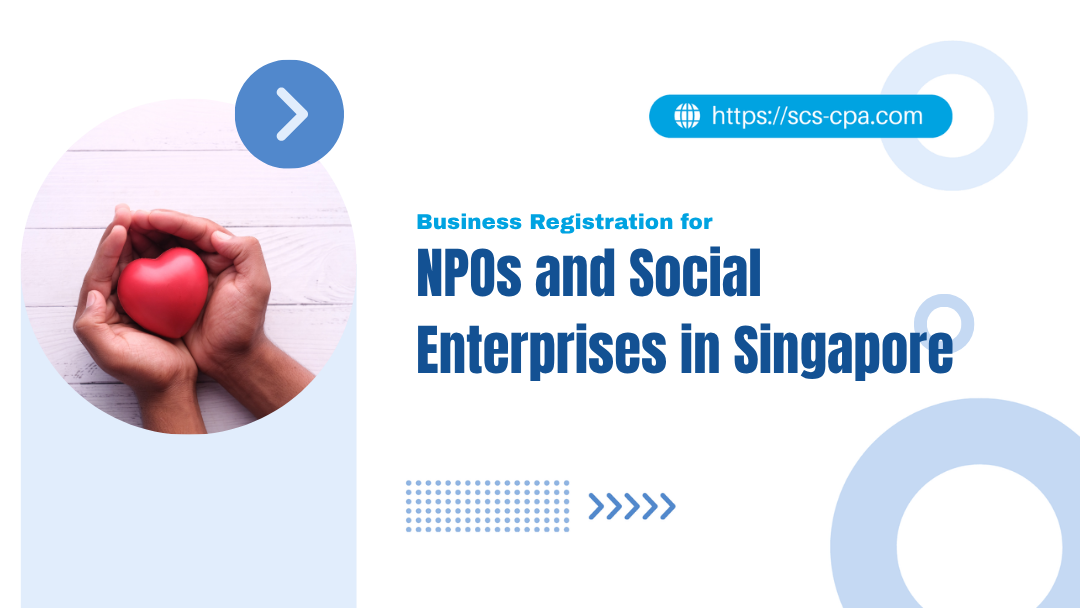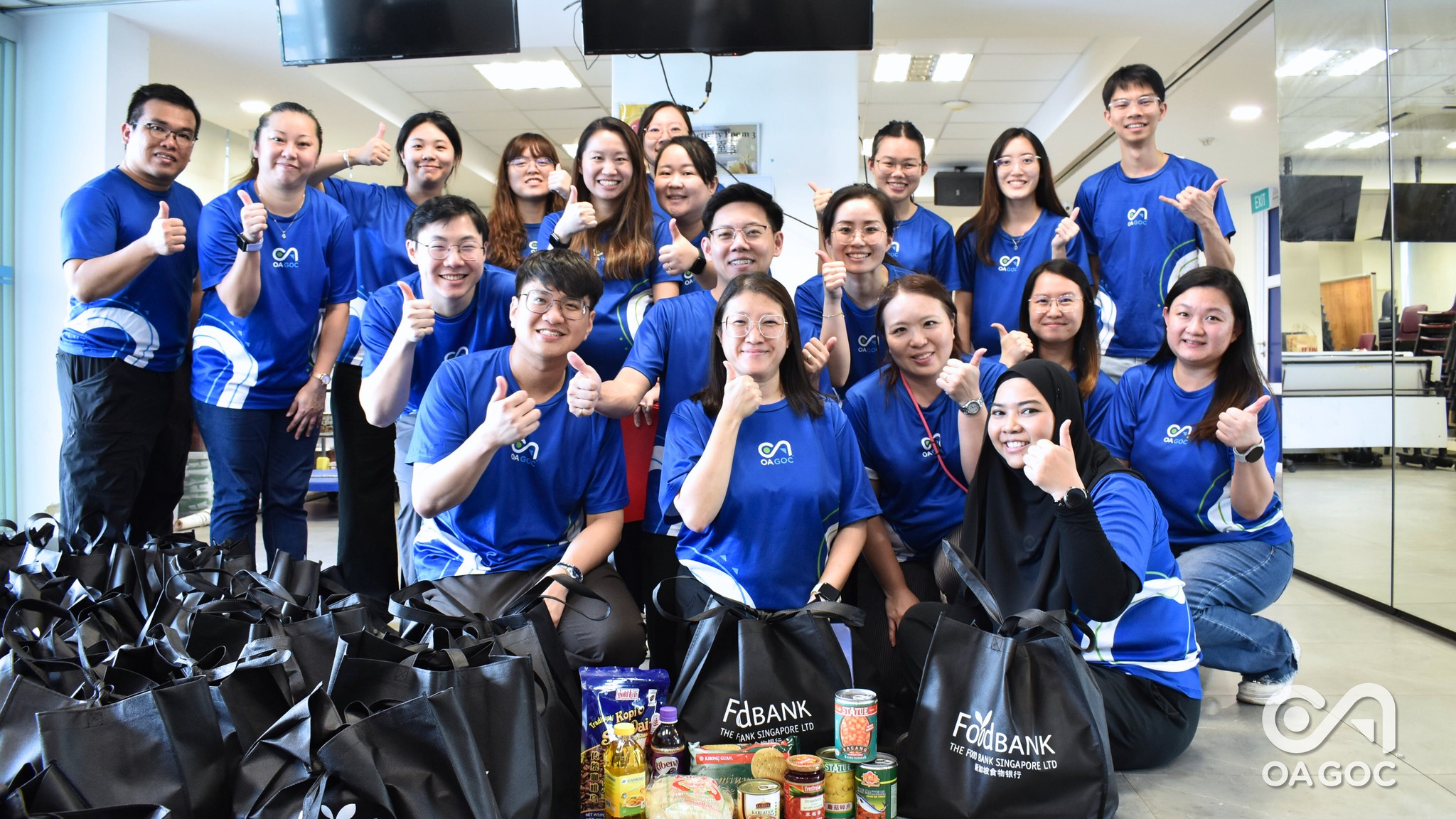
Singapore’s business scene is changing. More social enterprises and nonprofit organisations (NPOs) are helping in important areas, like education and community welfare. To date, there are 2,600 social enterprises and over 2,000 nonprofits in the Lion City.
If you plan on creating one, this guide will show you how to register an NPO or social enterprise in Singapore. Here, we will explore the key differences between the two options. It covers funding choices and compliance requirements. It also helps you choose the best structure for long-term social impact.
The Differences Between An NPO and A Social Enterprise in Singapore
Definitions and Objectives
Nonprofit Organisations (NPOs):
These are entities formed primarily for charitable, religious, educational, or community purposes. Any surplus is reinvested to further the mission rather than distributed to members.
Social Enterprises:
These businesses aim to achieve measurable social or environmental impact while generating revenue through commercial activities. Profits are used to sustain and scale their mission.
Legal Structures and Oversight
|
Entity Type |
Primary Regulator |
Common Legal Forms |
Examples |
|
NPOs |
Registry of Societies (ROS), ACRA, MAS, Commissioner of Charities (COC) |
Society, Charitable Trust, Company Limited by Guarantee (CLG) |
Food from the Heart, Willing Hearts |
|
Social Enterprises |
ACRA |
Private Limited Company (Pte Ltd), Company Limited by Guarantee |
The Social Space, Foreword Coffee, Bettr Barista |
Why Confusion Happens
An NPO and a social enterprise in Singapore share social missions but differ operationally.
|
Factor |
NPO |
Social Enterprise |
|
Funding |
Donations, grants, philanthropy |
Sales, services, impact investments |
|
Profit Distribution |
Not allowed |
Allowed, with reinvestment obligations |
|
Tax Treatment |
May qualify for exemption |
Subject to corporate tax |
|
Oversight |
COC, ROS, or MAS |
ACRA |
|
Compliance |
Fundraising reports, charity codes |
Annual returns, business filings |
What To Know Before Registering An NPO or Social Enterprise in Singapore

Regulatory Framework
Depending on your chosen entity:
- ACRA: Registers companies and CLGs
- ROS: Registers societies and community groups
- MAS: Regulates charitable trusts
- Commissioner of Charities (COC): Oversees registered charities and IPCs
As stated by Charities.gov.sg, a charity must:
- Have exclusively charitable purposes
- Operate primarily for the benefit of the Singapore community
- Have at least three board members, two of whom must be Singapore citizens or permanent residents
Required Documentation
To register an NPO or social enterprise in Singapore, you need:
- A constitution or charter defining your mission and governance structure
- Identification documents for directors or board members
- Proof of registered office address in Singapore
- Description of planned activities and beneficiaries
- Initial financial plan or funding outline
Where to Register
- NPOs (Societies): Registry of Societies (ROS)
- Charitable Trusts: Monetary Authority of Singapore (MAS)
- Companies Limited by Guarantee: ACRA BizFile+
- Social Enterprises: Register as a Pte Ltd or CLG with ACRA
The typical registration process takes 7 to 21 working days, depending on the documentation and approval requirements.
Funding and Support Ecosystem

Singapore offers a robust support network for both nonprofits (NPOs) and social enterprises. It combines government aid, community foundations, and corporate impact programs. Here is a breakdown of key funding sources and where to apply:
| Type | Grant or Support | Administered By | Eligibility and Application Links |
| NPO | Community Capability Trust Fund (CCTF) | National Volunteer and Philanthropy Centre (NVPC) and Ministry of Culture, Community and Youth (MCCY) | Supports charities and IPCs in improving governance and operations. Learn more |
| NPO | Care and Share Movement Grants | Community Chest | For charities supporting social service programs. Learn more |
| Social Enterprise | VentureForGood Grant (Up to S$300,000) | Singapore Centre for Social Enterprise (raiSE) | Supports new and existing social enterprises with sustainable social impact. |
| Social Enterprise | DBS Foundation Social Enterprise Grant | DBS Foundation | Provides funding and capacity-building support for regional social enterprises. Learn more |
| Hybrid / Impact Venture | raiSE Impact Finance Plus (IFP+) | raiSE Singapore | Provides financing and advisory services for growth-stage social enterprises. Learn more |
| Social Enterprise or NPO | Enterprise Development Grant (EDG) | Enterprise Singapore | Supports social-impact-driven businesses in innovation and capability development. Learn more |
| Investment / Impact Capital | Temasek Trust Ecosperity Innovations | Temasek Trust Ecosystem | Invests in high-impact, sustainability-driven startups. Learn more |
| Investment / Networking | Asian Venture Philanthropy Network (AVPN) | AVPN Asia | Connects investors, foundations, and corporations supporting social impact. Learn more |
Additional Grant Directories and Support Channels
Unsure where your organisation fits? Explore:
- raiSE Singapore – For social enterprises looking for mentorship, funding, and registration support.
- NVPC – Company of Good – For corporations integrating social responsibility.
- Enterprise Singapore Grants Portal – For startups and businesses driving innovation.
- Community Chest – For charities and NPOs seeking program funding.
Pros and Cons: Choosing the Right Entity
| Aspect | NPO | Social Enterprise |
| Funding Source | Grants, donations | Sales, investments |
| Tax Benefit | Eligible for exemptions | Taxable as company income |
| Compliance | Detailed reporting and audits | Standard business filings |
| Profit Distribution | Prohibited | Permitted |
| Scalability | Limited by donor dependency | High potential for growth |
If your goal is long-term sustainability and financial independence, a social enterprise is more flexible. If you rely primarily on grants and donations, an NPO offers stronger credibility and public trust.
How to Start a Nonprofit in Singapore

Stage 1: Plan Your Mission
Before anything else, you must first define your purpose and intended beneficiaries. Then, conduct a community needs analysis and choose an appropriate structure, such as Society, Trust, or CLG.
Stage 2: Reserve Name and Office Address
Ensure your organisation’s name reflects its mission and provide a registered Singapore address.
Stage 3: Register
After preparing the essential details, it is time to register your company. However, where to register depends on the type you choose.
- Submit online through the ROS portal for societies
- Apply with MAS for charitable trusts
- Register a CLG through ACRA BizFile+
Stage 4: Obtain Fundraising Approvals
Apply for fundraising licenses through the Commissioner of Charities if you plan to collect public donations.
Stage 5: Stay Compliant
Registration is not the end. After registering your company, there are a few things you must do to continue your business, including
- Submitting annual returns and audited financial reports
- Disclosing fundraising activities publicly
- Maintaining clear governance records
More Reads: After ACRA Registration: Your 30‑Day Compliance Checklist
How to Start a Social Enterprise in Singapore

Stage 1: Define Purpose and Model
You must clarify your mission and determine how your business model will sustain it through sales or service income. This clarification will become an important direction later on.
Stage 2: Register with ACRA
Register your business as a Private Limited Company (Pte Ltd) or Company Limited by Guarantee (CLG) via the BizFile+ portal. Then, appoint a local director, company secretary, and list a registered address.
Stage 3: Secure Licenses
Obtain any required industry-specific licenses, such as SFA permits for food-related operations or fundraising approvals. This action ensures you are qualified to carry on your trade.
Need more details on business licenses? Read This.
Stage 4: Access Funding
Apply for grants from raiSE, DBS Foundation, or Enterprise Singapore to kickstart your operations.
Stage 5: Track and Scale Impact
Establish measurable goals for your mission, build partnerships, and reinvest profits to expand reach.
Should I Register As an NPO or Social Enterprise in Singapore?
| Question | Best Option |
| Is your funding primarily from donations or grants? | NPO |
| Do you plan to generate income through products or services? | Social Enterprise |
| Do you want to qualify for tax exemption? | NPO |
| Do you intend to attract investors? | Social Enterprise |
| Is your focus long-term community benefit? | Either, depending on the sustainability strategy |
More reads: Why Outsource Corporate Secretarial Services?
Case Study Highlights: Real Social Impact in Action

1. The Social Space: Empowering Inclusive Employment through Sustainable Retail
Impact Summary:
The Social Space is a multi-concept social enterprise promoting conscious living through its eco-retail stores, cafes, and workshops. Beyond selling sustainable products, it provides inclusive employment opportunities to individuals from marginalised backgrounds, especially those facing barriers to traditional jobs.
Key Outcomes:
- Employs and trains persons with disabilities and disadvantaged backgrounds.
- Operates two retail-café spaces in Singapore supporting local social brands.
- Member of raiSE Singapore and recipient of the VentureForGood Grant for inclusive business development.
2. Food from the Heart: Reducing Food Insecurity Nationwide
Impact Summary:
Food from the Heart is a registered charity and IPC tackling food insecurity across Singapore. Through food distribution and waste reduction programs, it channels surplus food to low-income families and individuals.
Key Outcomes:
- Serves over 10,000 beneficiaries monthly across 80 distribution points.
- Partnered with schools, corporations, and government agencies to reduce food waste.
- Funded by the Community Chest and supported by NVPC for its outreach programs.
3. Edible Garden City: Cultivating Sustainability through Urban Farming
Impact Summary:
Edible Garden City transforms underutilised spaces into productive urban farms, supplying fresh produce to restaurants, schools, and communities. It also trains vulnerable groups in urban agriculture and sustainability practices.
Key Outcomes:
- Built 200+ urban farms across Singapore, including rooftop and community gardens.
- Provides food education and horticultural therapy to schools and senior care facilities.
- Collaborates with Enterprise Singapore and raiSE to expand sustainable food systems.
4. Bettr Group: Brewing Empowerment through Skills Training
Impact Summary:
Bettr Group, formerly Bettr Barista, is Singapore’s first B Corporation-certified social enterprise coffee academy. It empowers women and youth at risk through vocational training, emotional development, and employment opportunities.
Key Outcomes:
- Trained over 1,000 individuals from vulnerable backgrounds since 2011.
- Provides barista certifications, mental wellness support, and career placement.
- Supported by DBS Foundation, raiSE, and the Company of Good network under NVPC.
Resources and Useful Links
| Resource | URL |
| Charities and IPC Criteria | https://www.charities.gov.sg/Pages/Charities-and-IPCs/Register-as-a-Charity/Criteria-for-Registration-as-Charity.aspx |
| ASEAN Briefing: Setting Up a Non-Profit Organization | https://www.aseanbriefing.com/news/how-to-setup-a-non-profit-organization-in-singapore-a-guide-for-foreign-investors/ |
| IRAS: Tax Treatment for Charities and NPOs | https://www.iras.gov.sg/taxes/goods-services-tax-(gst)/specific-business-sectors/charities-and-non-profit-organisations |
| Registry of Societies (ROS) | https://www.mha.gov.sg/ros |
| ACRA BizFile+ | https://www.bizfile.gov.sg/ |
| Singapore Centre for Social Enterprise (raiSE) | https://www.raise.sg/ |
Ready To Register Your NPO or Social Enterprise in Singapore?

Singapore has one of the most open and helpful systems in Asia for starting nonprofits and social enterprises. If you want to help communities or support the environment, picking the right legal structure is key. This choice helps your organisation make a lasting impact and follow the rules.
With the right registration, funding, and management, your organisation can make a real difference. It will also have a solid legal and operational base. Good luck!
Setting Up A Biz?
Connect with us before
your next biz endaveur.
Corporate Income Tax Malaysia: Rates, Filing, and Strategic Compliance
Understand Malaysia’s corporate income tax system. Learn current tax rates, SME tiers, filing deadlines, LHDN requirements, penalties, and more.
Understanding the Core Types of Audits and Their Roles in Accounting in Singapore
Learn the key types of audits in Singapore to build trust and stay compliant. Examples are statutory, internal, GST, and forensic.
Tax Return In Singapore: A Friendly 2025 Guide
Want to be a responsible business owner? Read this guide to tax return in Singapore to help understand tax filing and play your part.



